Finding a way to integrate multiple facets of the built environment, Japanese architecture firm Suppose Design Office not only creates contemporary projects but has opened a real estate agency and construction company all under one roof.
Japanese architecture firm Suppose Design Office has been turning heads not only from its prolific contemporary builds, but its ongoing quest in innovation across all aspects of the architecture and design process.
Founded in 2000, and led by Makoto Tanijiri and Ai Yoshida, Suppose Design Office now operates two offices across Tokyo and Hiroshima with over 40 employees. Spanning residential, retail, office, hotel and exhibition design, the young firm’s projects include office headquarters, to private residences and even an intimate design for a secluded Japanese sushi restaurant in Tokyo.
As one of Japan’s emerging firms, one thing remains consistent for Suppose Design Office; the studio’s ongoing search for the unprecedented in the architecture industry. Suppose Design Office has launched its own in-house solution to the client and design process by founding its own real estate agency and construction company. Vantage Point Properties (also known as Zekkei Fudosan) and Twenty First Century Builders (also known as (21 Seiki Koumuten) are both situated in Suppose’s Yoyogi-Uehara-based Tokyo headquarters.
The extended business arms ensure further consistency across projects and encourage a new dialogue between the property owner and designer, an inevitable and innovative solution to today’s ever-changing landscape. The real estate arm mediates properties as a broker and finds the potential of both urban to rural sites across Japan, leading with the viewpoint of architecture in consideration first.
Tanijiri explains; “Architects usually aren’t involved in the decision of a site location. However, their relationship with the site, it’s construction system and materials are important parts to design architecture. We believe it can improve our design by proposing these parts to the client comprehensively.”
To integrate all arms, Tanijiri explains how the idea came about: “We decided to begin the property project about two years ago when a foreign client consulted us to build his holiday home in Japan. While he was looking for a location in the forest, we proposed a site next to a waterfall in a forest. We found that we could propose the site location to not only hold beautiful scenery but also to be suitable for the architecture.”
With full control over all aspects of design, its construction firms also aim to explore new material innovation to “expand the range of design proposal and development of a new material with design”.
Suppose’s first complete project utilising its in-house construction company is the concrete and timber-clad modern kaiseki restaurant Tenoshima, located in Tokyo. The restaurant’s design executes Suppose’s ethos of modern construction utilising technology and handmade craftsmanship in its execution.
Completed in March, it is the firm’s first realised project bridging all arms of the business, however, it is only the start for the firm’s promising concept.
INDESIGN is on instagram
Follow @indesignlive
A searchable and comprehensive guide for specifying leading products and their suppliers
Keep up to date with the latest and greatest from our industry BFF's!
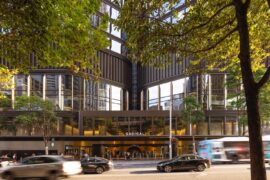
Rising above the new Sydney Metro Gadigal Station on Pitt Street, Investa’s Parkline Place is redefining the office property aesthetic.

A curated exhibition in Frederiksstaden captures the spirit of Australian design
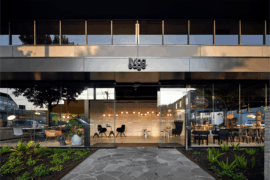
For Aidan Mawhinney, the secret ingredient to Living Edge’s success “comes down to people, product and place.” As the brand celebrates a significant 25-year milestone, it’s that commitment to authentic, sustainable design – and the people behind it all – that continues to anchor its legacy.
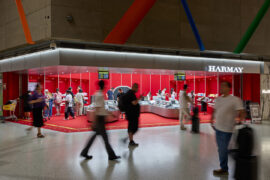
With its latest outpost inside Shanghai’s bustling Hongqiao International Airport, HARMAY once again partners with AIM Architecture to reimagine retail through colour, movement and cultural expression.
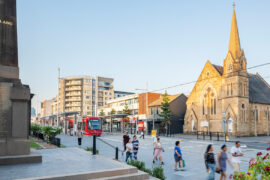
Australia’s first planted light rail corridor sets new benchmark for transport-led urban transformation.
The internet never sleeps! Here's the stuff you might have missed
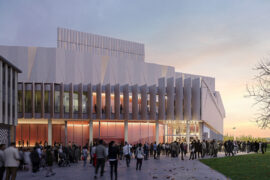
COX Architecture and Yerrabingin reveal the design for Canberra Lyric Theatre — a world-class, inclusive venue for the nation’s capital.

Sydney Open invites the public to explore over 55 buildings, spaces and new additions to the skyline, with a newly released Talks & Tours program offering direct access to the architects behind Bundarra and Pier Pavilion.
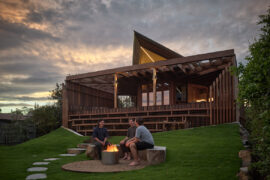
Recognised as a winner at the INDE.Awards 2025, Barton Taylor has received The Photographer – Residential accolade. His photographic work on Cake House captures the soul of a coastal icon reimagined, blending light, texture and atmosphere into a compelling visual narrative.